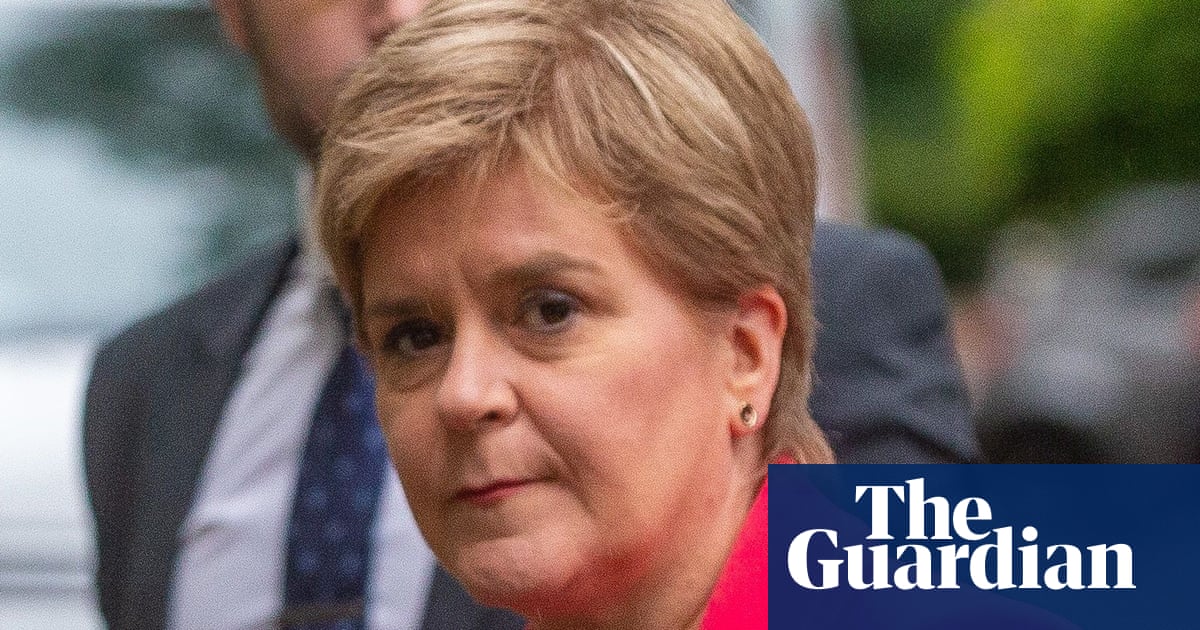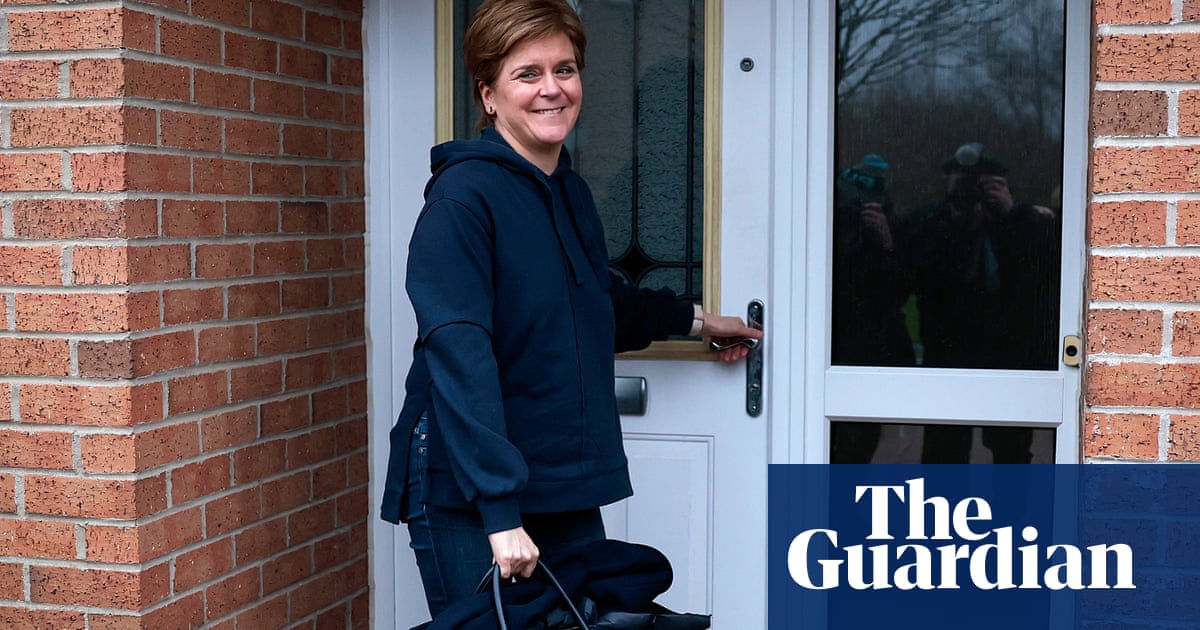
The Scottish government will propose the timescale and question for a second referendum on Scottish independence by next spring, Nicola Sturgeon has said, as she pledged the challenges of the coronavirus pandemic would act as an accelerant and not a brake on the Scottish National party’s ambitions.
Setting out her programme for government – Holyrood’s equivalent to the Queen’s speech – on Tuesday afternoon, the first minister announced a “youth guarantee”, offering a job or a place in education or training to everyone aged 16 to 24 , as she said Covid “will not be the defining experience for this generation”.
She also revealed plans for a £100m green jobs fund, further investment in digital infrastructure, and a review of adult social care, which will set out options for a “national care service”.
Sturgeon hailed her government’s “game-changing” Scottish child payment, but anti-poverty campaigners said that the delay of the rollout until next February would leave many families overwhelmed in the interim.
In a move welcomed by children’s advocates, the first minister confirmed what she described as “one of the most ambitious pieces of legislation in the 20-year history of devolution”: the full and direct incorporation into Scots law of the United Nations convention on the rights of the child.
Sturgeon emphasised that the pandemic did not mean her government would simply “hunker down and wait for the storm to pass”. She told MSPs: “Even amidst the uncertainties of a global pandemic, this is a time to be ambitious. To use the disruption of Covid to rethink how we do things.”
She compared a national care service – which Scottish Labour has been calling for over many months – to the postwar establishment of the National Health Service, and acknowledged that lockdown had further highlighted digital exclusion.
She confirmed that Connecting Scotland, established during lockdown, would provide laptops, unlimited data and training to those without digital access to 50,000 households by the end of 2021.
During her address, Sturgeon said that – were she governing an independent country and not having to deal with the “self-sabotage” of Brexit – she could contemplate even more far-reaching plans, including a reformed migration system and a universal basic income.
She pledged that by next spring her government would publish a draft bill for an independence referendum, which would set out “clearly and unambiguously to the people of Scotland” both the question to be asked and the timing of the vote.
The question would be subject to appropriate testing by the Electoral Commission, and the timescale would be “within the next term of parliament”, which lasts until 2026, and also “taking account of the development of the Covid-19 pandemic at the time of publication”.
She added that at next May’s Holyrood elections – in which the SNP are already predicted to win a majority as support for independence continues to rise – “we will make the case for Scotland to become an independent country, and seek a clear endorsement of Scotland’s right to choose our own future”.
But the new Scottish Conservative leader, Douglas Ross, accused Sturgeon of existing in a “Holyrood bubble”.
Ross said: “This was the moment where the first minister could have put selfish, narrow interests to one side and united the country. Instead, we’re told the solution is another referendum bill, only this time in the middle of a pandemic. The first minister just doesn’t get it. She needs to leave the Holyrood bubble and get back into the real world, where people are fearful of losing their jobs.”












